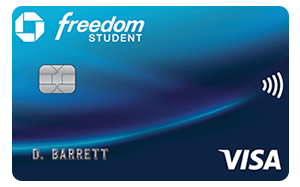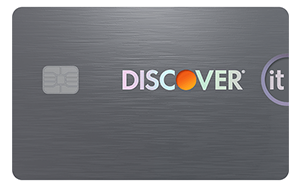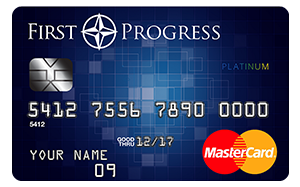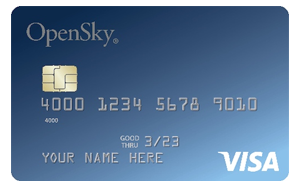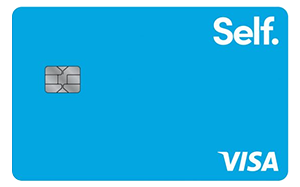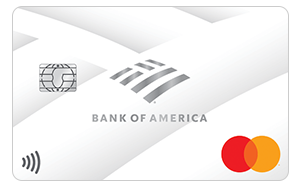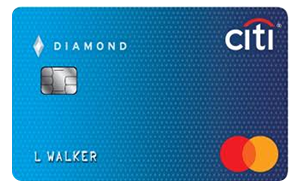Having a good credit score is an important part of maintaining your financial health. Establishing a credit history early in life will give you the best chance of securing loans and credit cards with low interest rates and favorable terms further down the line.
We’ll answer all your questions about how old you need to be to start building credit, what the best age is to start, and what steps you can take to get started while you’re still young.
Table of Contents
Can you build credit before 18?
Yes, you can begin building credit while you’re still a minor. However, you’ll need help getting started since you usually can’t get any loans or credit cards until you’re at least 18 years old.
The main option for building credit as a teenager is becoming an authorized user on an adult’s credit card. Many credit card issuers will report activity on that card to the credit bureaus, who will add it to your own credit report.
This means that being added to an account can allow you to establish a credit history at a very young age.
If you’re trying to build credit at 17 or younger, this is your most realistic option—it’s technically possible you’ll be able to get a loan or a credit card before you become a legal adult, but it’s unlikely. We’ll explain this in more detail below.
How old do you have to be to get a loan?
You usually have to be 18 to get a loan. Minors generally aren’t allowed to receive them. However, there are a couple of exceptions:
- Federal student loans: You can take out federal student loans before the age of 18 because they’re exempt from a “defense of infancy,” which would nullify other credit contracts. 1 Like other loans, student loans contribute to your credit score, meaning they can build up your credit over time.
- Personal loans with a cosigner: Some financial institutions, such as credit unions, offer personal loans to minors under 18 as long as they apply with an adult cosigner. This will also let you sidestep your lender’s credit score requirements, since you usually need a credit score to get a personal loan.
If you can get either of the loans mentioned above, you can use them to build your credit before you turn 18.
Downsides of taking out a loan
Bear in mind that loans really only benefit your score once you start repaying them. Initially, taking out a new loan will actually hurt your credit because you’ll be taking on a lot of debt (which looks bad on your credit report) and you’ll receive a hard inquiry from the loan application.
Loans can also be a major financial burden. To avoid going into too much debt, make sure you can afford to repay the loan. You also shouldn’t take any loans out for the sole purpose of building credit.
Can you cosign a loan for your child to help them build credit?
You can help your child build credit by cosigning a loan for them, but only if they’re a legal adult. Unfortunately, with the exception of some personal loans from a few credit unions (mentioned above), minors can’t apply for credit accounts until they’ve reached 18 years old, even if you cosign their application. 2
How old do you have to be to get a credit card?
You need to be at least 18 years old to apply for your own credit card. However, getting a credit card at 18 can also be difficult because young adults under 21 must meet additional eligibility requirements in accordance with the Credit CARD Act of 2009.
You’ll need to either:
- Get a parent or other adult over 21 to cosign your application.
- Prove that you’re capable of paying your credit card bills on your own, such as through a job or other source of income. 3
However, as mentioned, you can get access to a credit card under 18 by becoming an authorized user on someone else’s account. You won’t be the primary cardholder, but you’ll still get your own physical card with access to their line of credit.
At what age do credit scores start?
There’s no age requirement for getting a credit score, and you won’t automatically get your first credit score once you turn 18. The exact age you’ll get your first credit score depends on when you first meet the minimum credit scoring criteria used by FICO or VantageScore (the two main credit scoring companies).
For example, VantageScore will give you a credit score around 1 month after you get your first credit account (and your account issuer reports it to the credit bureaus). 4 FICO, on the other hand, won’t give you your first score until you’ve had your first credit account for at least 6 months. 5
It’s also worth noting that your credit score won’t start at zero. It won’t even start at the lowest possible credit score of 300. Rather, it’ll probably start somewhere else in the credit score range, depending on the information that’s been added to your credit file.
What’s the best age to start building credit?
It’s best to start building credit as young as possible. This is because both credit scoring models will reward you for having a long credit history, and lenders will be more willing to extend you credit if you can show that you have a strong track record of managing different types of credit accounts.
Building credit for the first time at an early age will give you a huge head start toward establishing a good credit score.
How to check your credit scores and reports when you’re under 18
Checking your credit scores and reports involves the same steps, regardless of your age. However, minors generally don’t have credit scores, unless they’ve been added as an authorized user to someone’s card. You can get free copies of your credit reports at AnnualCreditReport.com and get your free credit score through a score-checking app or credit-monitoring service.
How to start building credit early
In order to build credit, you need to have information added to your credit reports. Here are the best ways to start establishing a credit profile and building credit once you turn 18.
Get your first credit card
Once you’re 18 years old, you’ll technically be old enough to get a credit card. There are plenty of good credit cards you can get at 18 years old.
Secured credit cards are usually the best bet for young people who are just starting to build credit, but you may have other options even with no credit score. Below are a few of the best credit cards for beginners:
| Credit Card | Best For | Credit Score | Annual Fee | Welcome Bonus | |
|---|---|---|---|---|---|
| No Credit | 300–669 | $0 | |||
| Rewards | 580–739 | $0 | Cashback match | ||
| Travel | 580–739 | $0 | |||
| Visa | 580–739 | $0 | $50 Bonus | ||
| International Students | 580–739 | $0 | |||
| Credit Card | Best For | Credit Score | Annual Fee | Welcome Bonus | |
|---|---|---|---|---|---|
| Secured | 300–669 | $0 | Cashback Match | ||
| Unsecured (No Deposit) | 300–669 | $39 ($0 for the first year if you set up autopay) | |||
| Beginners | 300–669 | $49 | |||
| Students | 580–739 | $0 | Cashback match | ||
| No Annual Fee | 300–669 | $0 | |||
| High Approval Odds | 300–669 | $35 | |||
| Building Credit | 300–669 | $0 | |||
| Credit Card | Best For | Credit Score | Annual Fee | Welcome Bonus | |
|---|---|---|---|---|---|
| No Credit Overall | 300–669 | $0 | Cashback Match | ||
| Starters | 300–669 | $49 | |||
| Students | 580–739 | $0 | Cashback match | ||
| No Credit Check | 300–669 | $35 | |||
| No Annual Fee | 300–669 | $0 | |||
| Unsecured (No Deposit) | 300–669 | $75 for the first year ($48 after) | |||
| High Credit Limit | 300–669 | $39 ($0 for the first year if you set up autopay) | |||
| Instant Approval | 300–669 | $75–$99 the first year, then $99 annually | |||
| Beginners | 300–669 | $0 | |||
| Credit Card | Best For | Credit Score | Annual Fee | Welcome Bonus | |
|---|---|---|---|---|---|
| Secured Overall | 300–669 | $0 | Cashback Match | ||
| No Credit Check | 300–669 | $35 | |||
| Beginners | 300–669 | $25 | |||
| No Annual Fee | 300–669 | $0 | |||
| Bad Credit | 300–669 | $49 | |||
| Rebuilding Credit | 300–669 | $0 | |||
Get a credit-builder loan
Credit-builder loans are designed for building credit when you have no credit history or for rebuilding damaged credit. They’re known for being easy to get, even if you have a bad credit score or an insufficient credit history.
This is because credit-builder loans function more like savings accounts than typical installment loans (such as mortgages).
You still make monthly loan payments that build up your payment history on your credit report, but you only receive the money after you’ve paid the full amount rather than before. This minimizes the risk to your lender, which means they’ll be more willing to extend the loan to you.
Finance a purchase
If you’re planning to make a big purchase, then choosing to finance it will help you establish credit. This could involve opening a revolving credit account (i.e., one that works like a credit card) with a retailer or paying off the purchase in installments over time.
Here are some items that are commonly financed:
- Cars (i.e., auto loans)
- Phones
- Computers
- Furniture
- Household appliances
- Jewelry
Be sure to check the terms of any financing offers you’re considering before you sign up so that you fully understand the terms (e.g., the repayment period, interest rates, and late fees).
Some companies offer 0% APR financing for the first few months after your purchase but will charge you high interest fees if you don’t pay off your purchase within that period. Avoid only making your minimum payments because they may not be enough to pay off your full purchase within the 0% APR period.
If you don’t want to try retail financing, then consider exploring other loans for 18 year olds. However, remember that you should only ever apply for credit accounts you really need.
Takeaway: You can start building credit at any age, but you usually can’t get your own credit account until you’re 18.
- There’s no minimum age required to get a credit score and start establishing credit. You’ll start building credit whenever information is first added to your credit reports.
- You usually need to be 18 years old to open your own credit account. However, you can start building credit as a minor by becoming an authorized user or taking out a loan.
- It’s best to start building credit as early as possible because your credit score generally improves the longer you’ve been using credit.
- To start building credit, consider getting a credit card, taking out a credit-builder loan, or financing a purchase.




